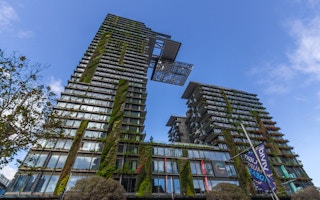The Better Buildings Partnership (BBP) - a City of Sydney initiative in collaboration with Foresight Environmental - has developed and launched a set of operational waste guidelines to help building owners, property managers and waste companies to work more effectively using a standard across their portfolios.
A key member of the BBP, Oliver Batchelour, Director of Foresight Environmental, says that this initiative - which brings 14 key building owners in the city of Sydney - will be a game-changer and resolve the biggest pain points commercial building owners face in the realm of waste management.
The BBP represents a number of Sydney’s leading commercial and public sector landlords and the new guidelines will address longstanding pain points such as inaccuracies in waste data reporting which can impinge on Green Star accreditation.
Building owners and managers have found it difficult to manage their waste program effectively. With a responsibility to report waste data to stakeholders, the present difficulty is that without verified data, key decisions regarding recycling rates cannot be made without confidence in the data.
Thus, it has been a challenge for corporations to account for their sustainability achievements due to data accuracy issues, said Batchelour.
He also said that with the cost of waste management rising year on year, so are operational costs.
“There’s an element of operational cost control that cannot be managed effectively if you have inaccurate waste data,” said Batchelour.
One of the biggest conundrums with waste data reporting in Australia is that data is reported by weight, but most waste programs are generally collected, charged and reported by volume. The challenge and inaccuracies occur when converting from a volume-based system to a weight-based one.
Thus, BBP guidelines promote the idea of using a range and evidence of criteria to provide a rating: A waste data integrity protocol, which is one that Batchelour believes will change the industry, helping building managers and building owners in benchmarking and comparing their waste against other buildings.
This is a boon for commercial landlords as it is relatively easy to get additional points for Green Star ratings for waste management during the design and planning stage. However, up till now, achieving Green Star accreditation for operational waste management has been challenging due to variations and data inaccuracies in data reporting.
The newly launched BBP waste management guidelines will tie up loose ends and present a holistic approach towards the sustainability initiative.
These guidelines have been released in the days before the Australasian Waste and Recycling Expo on 12-13 August in Melbourne.
The seminar session ‘New operating guidelines for commercial property managers’ on 12 August will delve in greater detail how to use these guidelines for more efficient procurement, management and reporting processes with case studies on hand to identify and present real-world solutions for better waste management.
Complete waste management plans have been used by architects and buildings during the development stage for several years, and now post-build, operational teams will have the necessary tools to put in motion waste management programs based on best practice.
Professionals from industry verticals such as recycling, weight-based charging and waste management consulting will stand to benefit from attending the seminar session, “New operating guidelines for commercial property managers” on 12 August from 2.45pm to 4.30pm at the Melbourne Exhibition and Convention Centre. For more details and to register for these sessions, go to awre.com.au/seminars.










